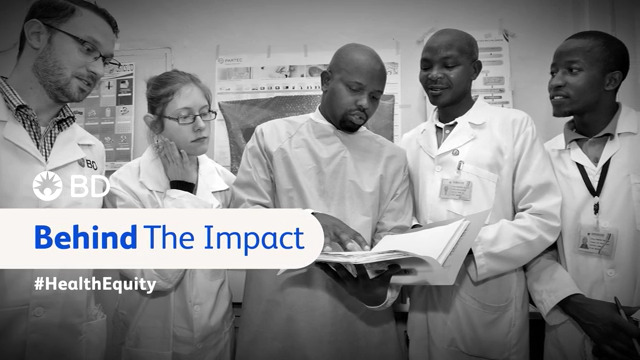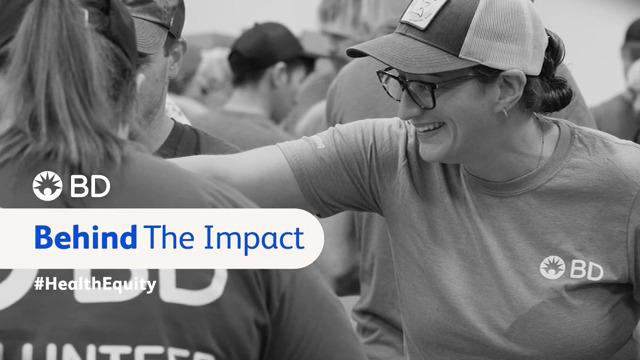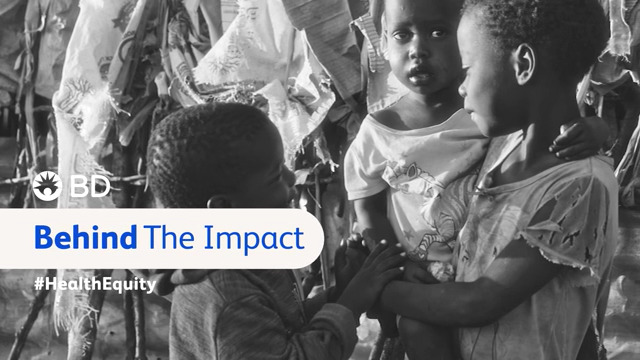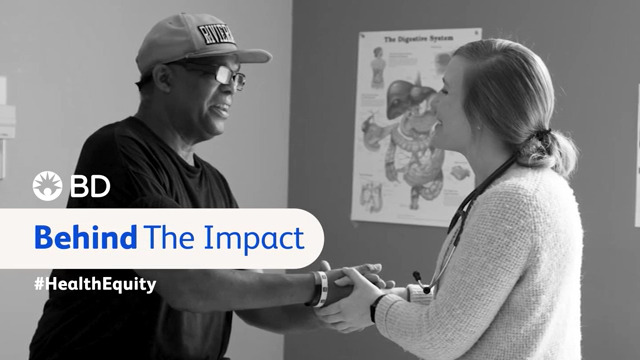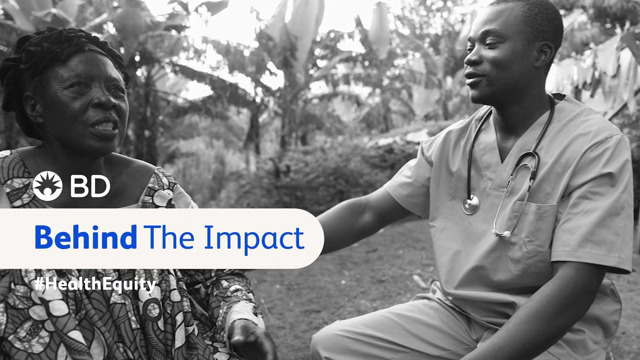Authored by Caitlin Asjes, Senior Director of BD Global Public Health
For more than 125 years, BD has been creating new technologies that improve the quality of life for billions of patients around the world, but those innovations won’t matter if the people who need them most cannot access them. This is why BD has pledged to help close the gap on global health equity by signing the World Economic Forum’s Zero Health Gaps Pledge, which reinforces our longstanding commitment to help expand access and improve equitable healthcare in communities around the world.
We are using our scale and influence as one of the largest global medical technology companies to work alongside industry leaders, policymakers and advocates to advance meaningful change for patients around the world.
Beyond the Buzzword: Why Health Equity?
Across all industries, companies are seeing increased interest among policymakers, academia, advocates, investors and their own employees, who are looking to better understand and measure how organizations are investing in and taking action to address health equity.
At BD, we define health equity as the state in which everyone has a fair and just opportunity to attain their full potential for health and well-being; and is absent of unfair, avoidable, or remediable differences among groups of people, whether those groups are defined socially, economically, demographically, geographically, or by other dimensions of inequality (e.g. sex, gender, ethnicity, disability, or sexual orientation).i
To make meaningful progress toward a system that enables equity in health, several baseline conditions must be met, including valuing all people and their health fairly and acknowledging systemic health challenges that weaken the quality of care for underserved populations. Countries that face lower levels of income, low levels of industrialization, poor social, political, economic and environmental conditions (in comparison with other countries) are often labeled “developing” or “low- and middle-income”. These countries are perceived to have little to no access to healthcare throughout the entire region, but we know that in every country around the world, there are populations who can afford – and have access to – high quality healthcare services. Simultaneously, there are under-represented, vulnerable populations across those same countries that face systematic barriers to care, and over the last decade these health disparities have only grown wider. Recognizing health inequities among people living within the same communities is a critical first step to finding a solution.
How is BD addressing health equity?
Core to our Purpose of advancing the world of health, and our values of doing what’s right – at BD, we are working to support health systems where they are today and bring critical healthcare technologies to more people, regardless of geography, demographics or socioeconomic status. We look to enable an environment for access by leveraging our capabilities and expertise, establishing public-private partnerships and creating scalable programs that help strengthen health systems. This strategy is reliant on:
Our technology and innovation: BD leverages the global reach of our products, research, solutions, and expertise to help ensure health systems, healthcare workers, and patients have access to life-saving technologies, regardless of geography, demographics, or socioeconomic status. We are focused on some of the most pressing global health challenges, including TB, AMR and oncology, as well as chronic diseases, such as end-stage kidney disease and peripheral artery disease. We’re looking beyond our portfolio and building health equity into our business processes.
Our public-private partnerships: BD partners with governments and global humanitarian organizations to help support and advocate for health systems that serve under-represented populations around the world and help create an enabling environment to increase healthcare access. We work with communities to change policies and practices to create access, resources and opportunities that contribute to overall health for all people and new opportunities for business. Our public private partnerships allow us to combine resources across sectors to support governments in ways we couldn’t alone. We have over 25 active Global Public Health partnerships around the world. These programs are created so that they can be rapidly scaled and designed with sustainability in mind.
Our investment in health system strengthening: BD makes investments that build, strengthen, and maintain critical competencies and resources that are needed to improve the delivery of care within under-resourced settings. BD alone trains more than 1 million healthcare workers every year and reaches even more through networks we support, such as the International Council of Nurses’ ODENNA program which supports 24 National Nursing Associations in Africa. Additionally, to further strengthen under-resourced health systems, in 2023, we refreshed our strategy for social investing to direct the majority of BD’s cash and product donations to health equity-related causes.
Through a mixture of policy, partnerships, grants and programs, we have identified a strong portfolio of work that will advance health equity and access and support BD’s growth. Examples of this work include cervical cancer screening and prevention, government partnerships to drive immunization campaigns, investments in U.S.-based free clinics and community health centers in low-resource settings, strengthening TB resistance testing and expanding capacity for antimicrobial resistance (AMR) diagnostics and surveillance in Africa and SE Asia.
Above all, it is our people, values, and culture that are key enablers to improving equity and access. Advancing this work is highlighted as a key theme of our 2030+ ESG focus areas. By embedding health equity and access into our ESG strategic initiatives, we are prioritizing efforts to help make meaningful, positive and equitable progress in our communities.
Subscribe to receive BD blog alerts
